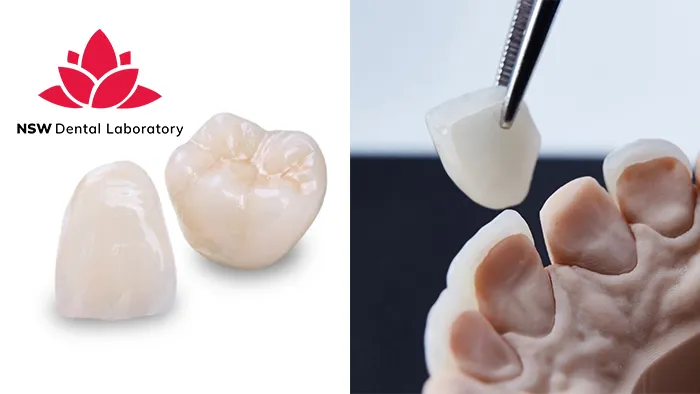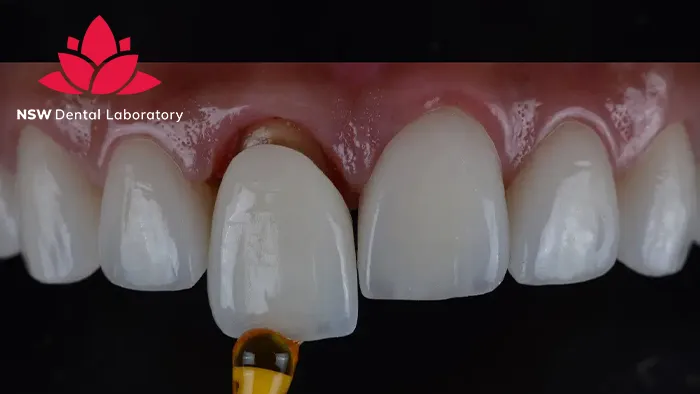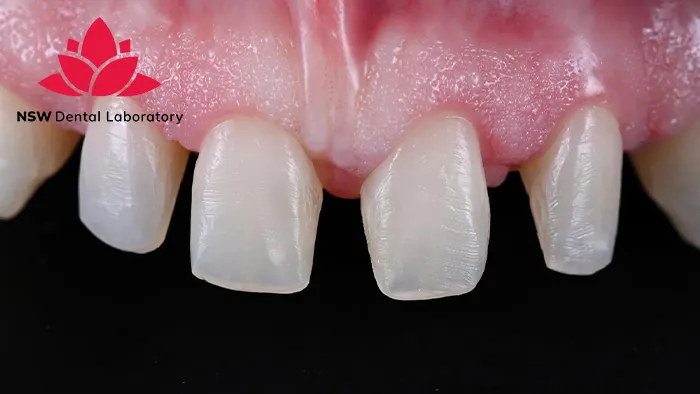Dental Bridge And Implant: Which Is The Best Choice For You?
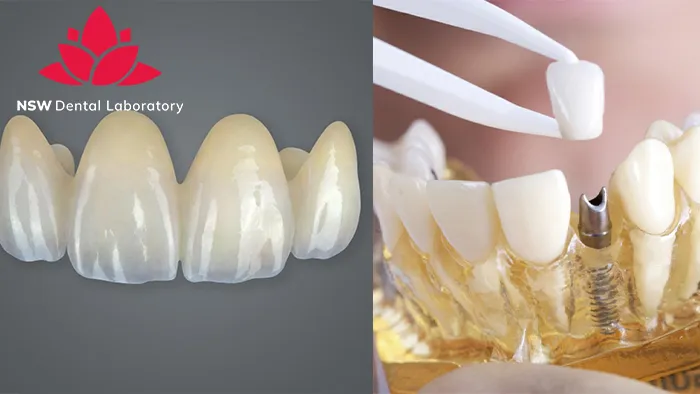
Tooth loss is a serious issue that not only significantly impacts the appearance of your smile and reduces your confidence but also affects essential functions such as chewing and speaking. When it comes to replacing missing teeth, modern dentistry offers a variety of solutions, with the Dental Bridge And Implant remaining two of the most popular options.
The Dental Bridge and Implant offer unique benefits, but also have their potential drawbacks. Choosing the best option typically depends on an individual’s oral health condition and personal preferences.
To determine which solution is right for you, let’s explore the key differences between Dental Bridge and Implant in this month’s blog, helping you make an informed decision for your specific case.
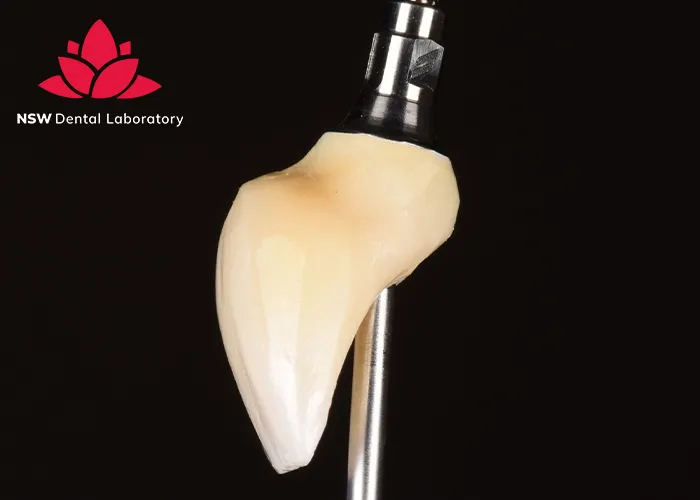
What Is a Dental Bridge And Implant?
What Is a Dental Bridge?
Dental Bridge is a fixed prosthodontic solution, true to its name, used to “bridge” the gap created by one or more missing teeth, restoring both function and aesthetics. A dental bridge consists of two or more crowns placed on the adjacent natural teeth or implants (these supporting teeth are called abutment teeth) and one or more pontics (artificial teeth) in between. A Dental bridge is typically fabricated from a combination of materials such as metal, porcelain, or ceramic, often with porcelain or ceramic fused to a metal substructure to provide both a natural appearance and durability.
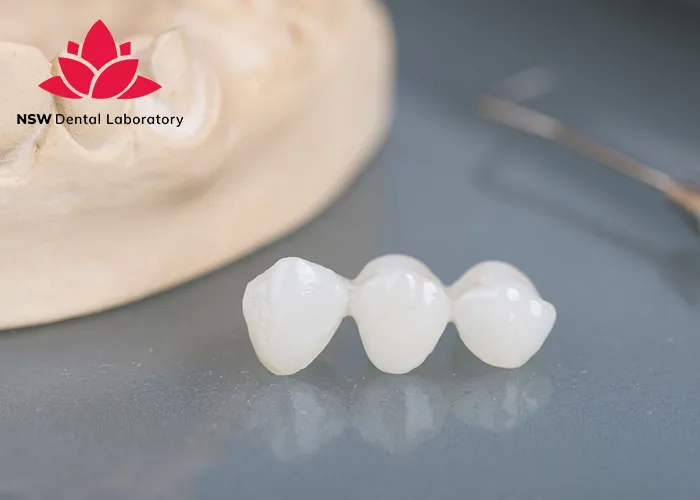
What Is A Dental Implant?
Dental implants are a surgical dental treatment that replaces tooth roots with screw-shaped metal posts surgically placed into the jawbone and replaces missing or damaged teeth with artificial teeth that look and function like natural ones. Dental implant surgery may be a suitable option when dentures or bridges do not fit properly. It is also considered when there is insufficient natural tooth root to support a prosthesis or to construct a traditional dental bridge.
Implants can be used to replace a single tooth, several adjacent teeth, or all missing teeth in a jaw, or to support a removable or fixed denture. The number of implants placed depends on the final prosthetic design and the available bone volume and quality at the implant site.
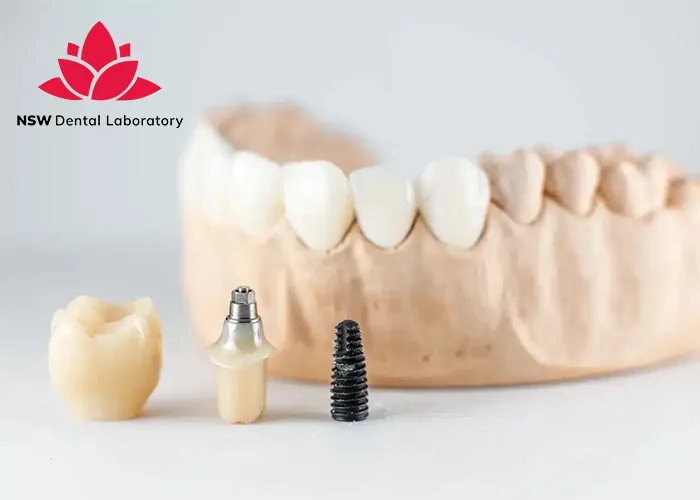
Advantages and disadvantages of the Dental bridge and implant
Advantages of a Dental Bridge
- No surgery or bone grafting required: Dental bridges are a non-surgical solution and do not require jawbone support, thus eliminating issues related to pain, infection, or complications during and after surgery or bone grafting.
- Low cost: In many cases, dental bridges are less expensive upfront than dental implants. While the long-term costs might differ (bridges might need replacement after a certain number of years), the initial investment is often lower for bridges.
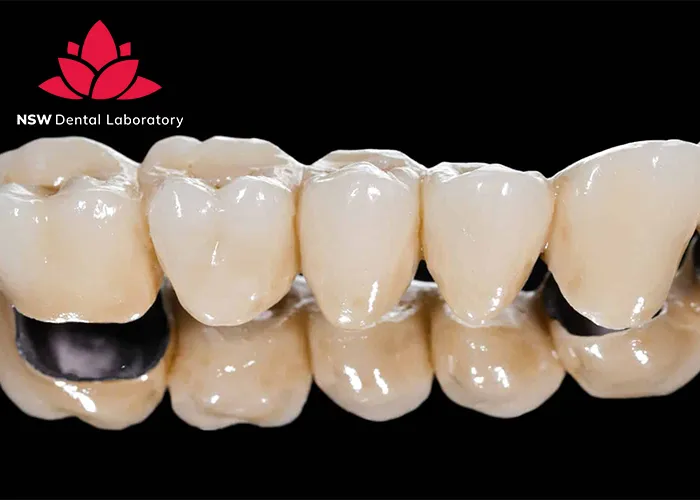
- Quicker Process: The procedure for placing a dental bridge is generally faster than that for dental implants. Implants require a healing period after the implant post is placed into the jawbone, which can take several months, followed by another procedure to place the crown. Bridges, on the other hand, can often be completed in just a couple of visits.
- Suitable for certain medical conditions: Patients with certain medical conditions or inadequate bone quality may not be ideal candidates for implants due to potential complications or slower healing processes. In such cases, a dental bridge may be a more appropriate option.
Advantages of A Dental Implant
- No Impact on Adjacent Teeth: Dental Implants stand alone and do not rely on neighboring teeth for support. In contrast, Dental Bridges require the adjacent teeth to be filed down to accommodate the bridge, potentially compromising their structural integrity.
- Natural Look and Feel: Dental Implants are designed to mimic the root structure of natural teeth, providing a foundation for replacement teeth that look, feel, and function like your natural teeth.
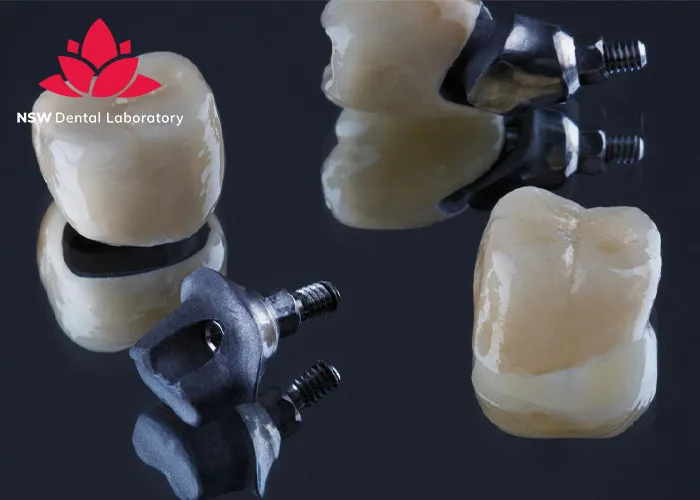
- Improved Oral Hygiene: Since dental implants function like natural teeth, they do not face the same hygiene challenges as bridges. This makes it easier to maintain good oral hygiene, reducing the risk of cavities and gum disease.
- Durability: With proper care and maintenance, Dental Implants can last a lifetime, making them a more permanent solution compared to Dental Bridges, which may need replacement after a certain number of years.
- Preservation of Bone Structure: Implant-supported grafts help stimulate the jawbone, preventing bone loss in the area of the missing tooth and averting long-term consequences such as facial collapse or asymmetry and unstable teeth.
Disadvantages of a Dental Bridge
- Shorter Lifespan: When fabricated with high quality, both the Dental bridge and implant are considered long-term solutions; however, in general, Dental bridges generally have a shorter lifespan than implants, averaging about 5-15 years, whereas implants, with proper care, can last a lifetime.
- Difficulties in cleaning and adjustment: Cleaning a Dental Bridge can be more challenging, increasing the risk of cavities or gum disease in the supporting teeth. Additionally, if the bridge needs adjustment or replacement, the process can be more complex compared to Implants. However, this can be addressed if the patient fully understands and correctly follows the hygiene protocols specific to the dental bridge and implant.
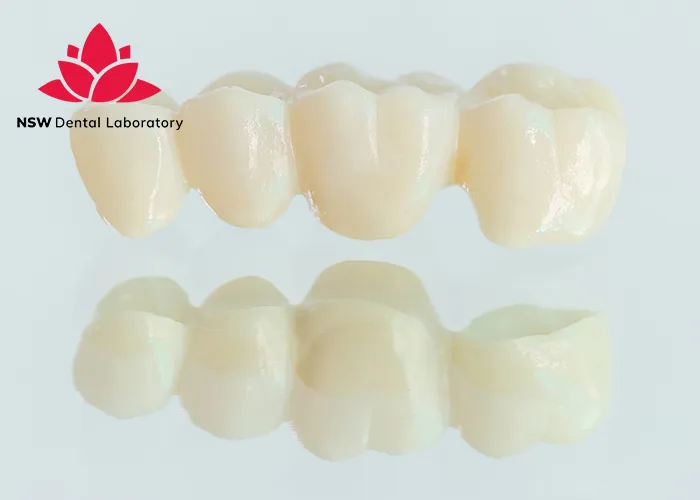
- Impact on adjacent teeth: To place a traditional dental bridge, the adjacent teeth on both sides of the gap must be reduced in size. This can weaken these teeth and make them more susceptible to cavities and further damage in the future.
- Jawbone resorption: Over time, the site of the lost tooth no longer receives stimulation, leading to jawbone resorption. This can result in several long-term negative consequences, such as facial collapse or asymmetry, and instability of dentures.
Disadvantages of a Dental Implant
- Surgical Procedure Required and Potential for Complications: Dental implants involve a surgical procedure to place the titanium post into the jawbone. This can be a deterrent for some individuals, especially those who are apprehensive about surgeries. As with any surgical procedure, there’s a risk of complications such as infection, nerve damage, or sinus problems (if the implant is placed in the upper jaw)
- Not Suitable for Everyone: Some patients may not qualify for implants due to issues with jawbone density, health conditions, or other factors related to age.
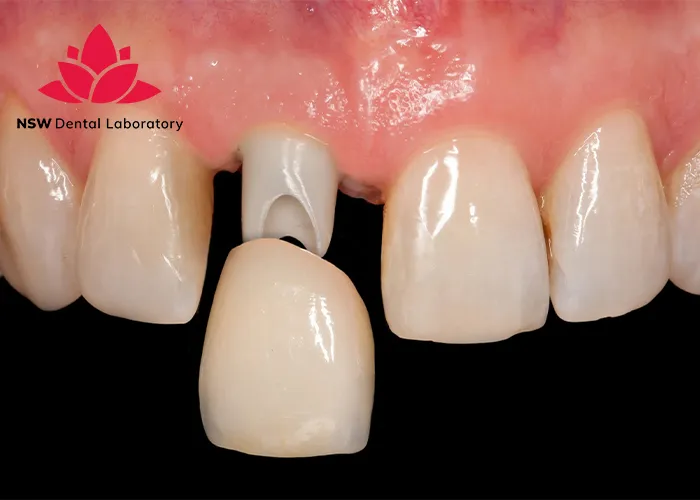
- Higher Initial Cost: Although Dental Implants may be more cost-effective in the long run due to their durability, the initial investment is something to consider. They are typically more expensive than bridges due to the need for multiple procedures and specialized materials during the implant placement process.
- Longer Treatment Time: The Dental Implant process often takes longer, including the waiting time for healing and integration with the bone, which can take anywhere from a few months to a year. In contrast, a dental bridge can usually be completed in just a few appointments.
Make The Right Choice For You
It is impossible to determine which method is best, as the decision between the two is not a one-size-fits-all answer but rather a deeply personal choice influenced by individual needs, oral health, financial considerations, and lifestyle preferences. Your dentist can provide the necessary information and guidance to help you make a decision that aligns with your specific needs and circumstances, ensuring you choose the most suitable solution for your goals and achieve a bright, confident smile for years to come.
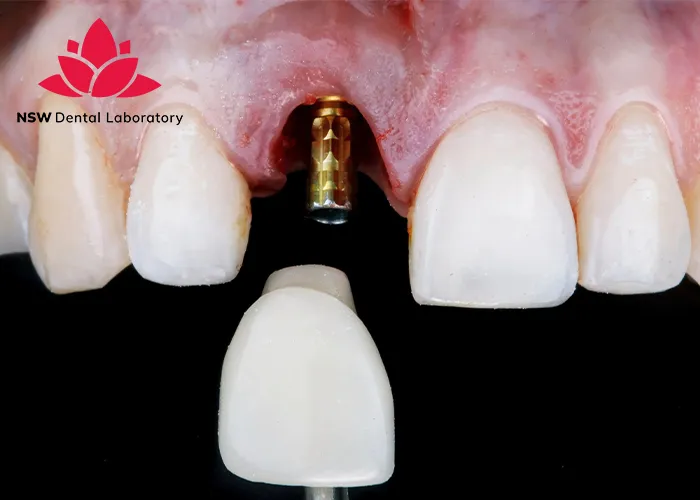
While Dental Bridge provides a quicker, non-surgical solution that may be more cost-effective initially, Implant promises longevity, a natural feel, and preservation of jawbone health. The best way is to consult with your dentist to make the most appropriate decision regarding the Dental Bridge and Implant. And hope that through this article, we can help you make the most suitable and correct choice.
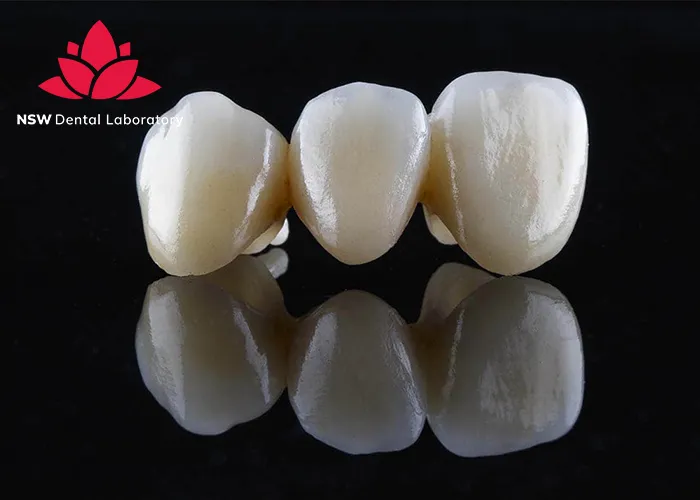
In addition, NSW Dental Lab, with many years of experience in the dental field, is ready to accompany and support both dentists and patients in their journey of finding optimal dental solutions in general, the dental bridge and implant in particular. We provide a full range of high-quality fixed restorations, including monolithic zirconia, PFZ, PFM, and Emax, fully meeting the demands of both dentists and patients.

